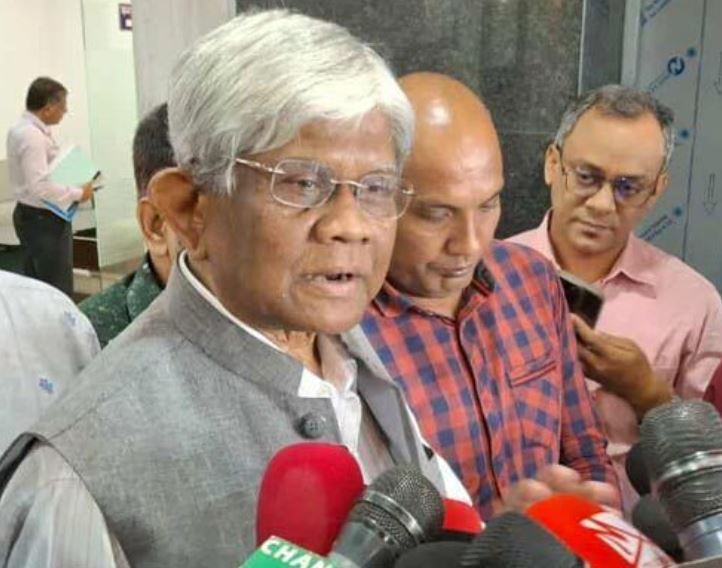Finance Adviser Dr Salehuddin Ahmed said on Tuesday that the proposed 35% US tariff on Bangladeshi exports is not final, expressing optimism that the issue could be resolved through direct talks before the new rate takes effect on 1 August.
Speaking at the Secretariat after a meeting of the Cabinet Committee on Economic Affairs and Public Procurement, the adviser said Bangladesh’s Trade Adviser Sheikh Bashir Uddin is already in Washington and the Commerce Secretary was due to join him later in the day.
“A one-on-one negotiation is underway with the Office of the United States Trade Representative (USTR), and we are hopeful of a positive outcome,” Salehuddin said.
“We will better understand Washington’s position after tonight’s meeting.”
The US tariff announcement – posted by President Donald Trump on his Truth Social account early Tuesday (Bangladesh time) – proposes a 35% duty on Bangladeshi goods, down from 37% initially signalled in April.
Thirteen other countries were also notified of revised tariff rates, ranging from 25% to 40%, with Myanmar and Laos facing the highest slab. The new rates are scheduled to take effect on August 1.
The letters warned that any retaliatory tariffs by affected countries would prompt further hikes from the Trump administration.
Officials in Dhaka say the communication so far from the US is not conclusive and that room for negotiation remains.
“Based on the discussions held so far, we are optimistic,” the finance adviser said.
“Whatever the final outcome, the government will take necessary measures to protect its national interest.”
The finance adviser questioned the rationale behind such a high tariff on Bangladesh, pointing to the relatively small trade imbalance.
“Our trade surplus with the US is only $5 billion,” he said. “Vietnam, on the other hand, has a $125 billion surplus and still secured a lower 20% tariff. That raises questions about consistency.”
Bangladesh has long demanded duty-free access to the US market for its ready-made garments and other major exports. The Generalised System of Preferences (GSP) has remained suspended since 2013.
The government has recently intensified diplomatic efforts to revive these trade benefits.
On the domestic front, the adviser noted a decline in inflation, particularly in food items, and said reforms in tax administration are being rolled out to improve revenue collection.
“There is no major budget deficit,” he said. “If the tax reforms are implemented correctly, revenue performance will improve substantially.”
The government believes the trade negotiations could pave the way not just for tariff relief, but also for broader bilateral cooperation with the United States in trade and investment.


